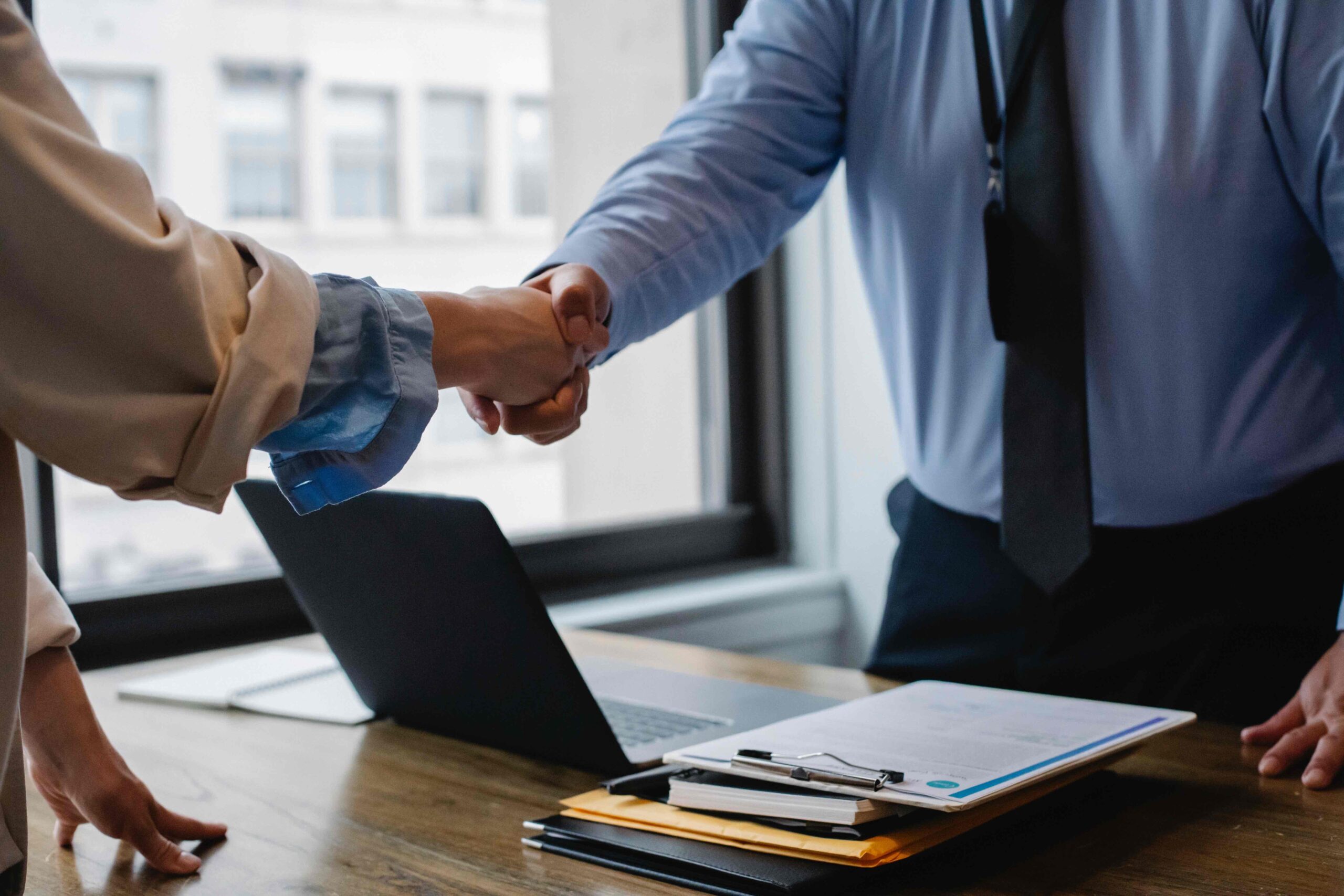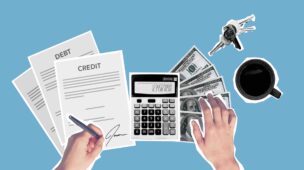Reading time: 14 minutes
This post may contain affiliate links. If you click these links and purchase something, we may earn a commission. This helps us provide the information here free of charge to you. Continue Reading.

These days consumer lending is a way of life. Your credit score will directly affect whether or not you can get a loan and what interest rate you will pay for borrowing that money. Credit scores can also affect many other aspects of your life:
- Some property managers won’t let you move in without a credit check
- You can’t work at particular jobs if you have poor credit
Because having a good credit score is so important, I want to help you out. I’ve already written ways to improve your credit if it needs some help, but here are some things that you should avoid doing as they will affect your credit score and history in a bad way.
Here are some of the most common mistakes people make when trying to rescue their credit score:
1. Canceling Old Credit Cards Can Improve Your Credit Score
Did you know that 15% of your overall credit score comes from your credit history and the length of your credit? One of the most fundamental mistakes when you notice a low credit score is canceling your old credit cards, but this can harm your credit score.
This shows that you have a longer period of credit history that can play a big part in growing your credit score.
Additionally, if there are current balances on older credit cards, canceling them can affect your debt ratio which accounts for 30% of your score.
Keeping open old credit cards with additional limits can show a more significant amount of available credit and can help your overall score.
For example:
If you have two credit cards that both have $5,000 limits and you owe $2,500 on one of those cards, then combined, you only owe $2,500 out of a total $10,000. This shows that you are only using 25% of your total available credit.
If you were to close the credit card that you owe nothing on, then you still owe $2,500, but your total available credit is now decreased to $5,000, which is 50% of your overall credit.
2. Having Too Many Open Credit Lines
10% of your credit score will be directly affected by the types of credit you used. If you have a lot of different sources of revolving credit (like a lot of credit cards or lines of credit), then this can make you appear to creditors as a high risk.
Since you may have multiple avenues of credit, it also means you have more potential of racking up a lot of credit debt, quickly.
When you are shopping it might make sense to want to open a credit card just to get that big percentage discount, but this can prove fatal to your overall credit score.
If you already have some store credit cards, you should cancel those once you have paid them off to keep a healthy amount of credit available.
3. Max Out Your Cards and Improve Your Credit Score
Remember how I mentioned that 30% of your credit score comes from the ratio of your credit debt and your credit limits? Completely maxing out all of your available forms of credit can affect your credit score, even if you are keeping up to date with your payments.
The more you spend on your cards, the more debt you are creating for yourself. Since creditors look at this type of information, there is potential for high levels of debt to show you are not able to pay it off in a necessary time period.
Instead of putting new things on a credit card that is close to maxing out, focus on paying down your balance with extra or larger payments. This can show that you are a smart consumer that watches your debt and replenishes it with your income.

4. Never Checking Your Credit Score
You can’t be aware of any problems or know to start fixing something if you are entirely unaware of what your credit score is. To assume that your credit score is subtle is an excellent way to set you up for failure.
There is also a possibility that there are errors in your credit score that are affecting it, and if you aren’t regularly checking your score you wouldn’t know to get those fixed.
You can check your credit score for free once a year from major credit bureau agencies like Equifax, Experian, and TransUnion. You can also use a credit monitoring service like Credit Karma to check it regularly (many of their features are free!)

5. Asking for a Credit Limit Increase and Improve Your Credit Score
A key to maintaining a good credit score is to keep your credit utilization low. This is when you look at your available credit and compare it to your available balance.
When you go in and ask for a credit limit increase, the bank will re-evaluate your financial situation to see if you can be approved.
If you are in the process of rebuilding your credit, then this could be detrimental to your credit score.
For those who have good relationships and history with a bank or creditor, you will be granted higher limit amounts over time, so try to hold off for one of those scenarios instead of asking for a limit increase.
6. Request A Credit Limit Reduction and Improve Your Credit Score
It’s a common misconception that you are better off with reducing your credit limit than having too much available credit.
Reducing your credit limit will do nothing except negatively affect your credit score. Instead of asking for a reduction, simply treat your current limit as a lower amount.
This isn’t easy, and in fact, will probably take a lot of personal restraint and discipline. But limiting the amount you spend on your credit limit without having to decrease it can prove much more beneficial.
7. Only Having Credit Cards
While credit cards are a simple way to add to your overall credit history, only relying on credit cards can be risky to your credit score. When you have a wide variety of credit can be more beneficial to your credit score.
On average, a person that has a mortgage, car loans, and credit cards will have a higher score than someone who only has credit cards.
If you are looking to mix up your credit, I suggest taking out a personal loan instead of an additional credit card. Reach out to your local bank or credit union if you’d like to implement this plan.
8. Paying Your Bills Late Will Not Improve Your Credit Score
Probably one of the most significant factors in determining your credit score is your past payment history. The occasional one or two late payments won’t necessarily directly affect your credit score, but it may set you up in a habit that consistently makes late payments.
Habitually missing payments and paying them late will often end up in late fees that add on to the amount you already owe.
Too many of these offenses for your credit cards, loans, and any other important financial obligations can show future creditors you are careless with your money and will affect your credit score dramatically.
An app like Personal Capital can help make sure you stay on top of your bills, especially your credit card bills! And it’s free to download!
9. Not Paying the Minimum Amount Required
Staying on top of your payments is just as important as making the right payment. Making payments for random amounts that don’t add up to the minimum amount required can lead to creditors reporting your account as past due.
Just like late payments, paying less than the minimum amount can result in late fees and even additional interest charges. Not only do these add up quickly, and add to your overall debt owed, but it can also dramatically affect your credit score.
10. Declaring Bankruptcy
The majority of people end up declaring bankruptcy because they believe it is their only way out of their debt, but this can hurt your credit score drastically. Before making that jump, try to seek counsel with a legitimate source and gather all available information.
A credit counseling service will be able to tell you what plans are available for paying back your debt and can even help you figure out if refinancing, negotiating, or consolidating your debt will be beneficial.
Try every avenue you can before filing for bankruptcy, because it can affect your credit score for years to come.
11. Forgetting to Alert Creditors If You Move or Change Your Name
It seems simple enough right; if your name or address changes, you typically update that information everywhere. However, credit card and debt companies generally are far on your list to remember.
By not changing your address, you miss out on receiving bills that can alert you when you are at risk of falling behind on payments.
On the same line, if you do not update creditors when your name changes, your credit score may not reflect your accurate score. Your credit history will need to show an updated name change to be able to link all of your credit histories together.
12. Utilizing the First Credit Counseling Service You Come Across
As I previously mentioned, credit counseling services can prove beneficial for boosting your credit score. Still, you should do your research before deciding on the perfect one to work with.
Good Rule of Thumb: the ones who advertise the most with the obnoxious gimmicky slogans are typically ones you want to steer clear of. Yes, there might be a gem in the majority of ones that can do more harm than good, but is your credit score really where you want to put that risk?
Your credit score will affect the majority of your financial decisions for years to come, so your research will not be wasted. Use the FTC’s advice when finding reputable credit counseling services around you.
Once you have narrowed your list, check their company by the Better Business Bureau as a last form of precaution.

13. Not Comparing Your Loan Offers
Similar to my previous mistake, not only do you have to shop around for lenders, but you should also shop around for the best loan offer.
Taking other loan offers into consideration when making your choice can save you a lot of money in the long run.
Small changes like interest rate offer and repayment periods can affect your savings over time. Depending on the type of debt you have, credit cards, mortgage loans, and auto loans will have different requirements, so keep this in mind as well.
14. Foreclosing to Get Out of Paying
When your loans get foreclosed on that will stay on your credit report for seven years.
This will affect your credit score dramatically in the beginning and for many years to come. Foreclosures can play a big part in how your finances will be handled in the future.
15. Practicing Credit Card Arbitrage
What is credit card arbitrage? This is the tricky process of borrowing money from a credit card with low-interest rates and then investing that money at a higher interest rate to maximize your profits.
I mentioned that this is a risky process because there is a lot of risks involved and you are potentially risking money that is more than the previous amount you owed.
For those that partake in this that are not at an expert level, it can cause serious damage to your credit score.
If you are financially stable, then this may be a time where this option can potentially benefit you, but for those starting out on their financial journey, this is almost always not worth the risk.
16. Not Using Your Full Legal Name
The final mistake commonly made by people that affect their credit score is not using your full legal name on financial documents.
While this may seem like a simple oversight, it happens more times than not. All financial aspects like your bank accounts, credit applications, and any other document containing financial information will all become part of your credit history.
If by chance, you did not use the same name on one document, your credit score will not accurately reflect your credit situation. By using your full legal name, you can also ensure that your information is accurate and accurately reflected.
Avoiding these common mistakes can lead to an increase in your overall credit score. But why is this important? Why does your credit score affect your life so drastically?
How Do These Mistakes Affect My Credit Score?
Your FICO credit score is made out of a range of points, and all the previously mentioned mistakes can affect your points. FICO’s Credit Problem Comparison updated consumers about how exactly their financial decisions affected their actual credit scores.
Keep in mind that your credit score will differ greatly from other’s scores, and higher scores are typically affected more with these mistakes. For this scenario, we will focus on the most common 5 mistakes that are made by creditors, and how those mistakes directly decrease their credit scores.
By comparing the average credit score of 680 to a higher, excellent credit score of 780, you can hopefully adjust as needed to get an idea of what potential mistakes can cause you and your credit score.
Missing One Credit Card Payment:
For one, 30-day late, missed payment the average credit score of 680 would result in losing anywhere from 6 to 80 points. Like I previously mentioned, higher credit scores usually suffer more. In this scenario, if you have a credit score of 780 and miss a payment, your score could be affected by 90 to 110 points.
Maxing Out a Credit Card:
When you max out a credit card, you are showing creditors that you are not smart with watching what you spend. For those with a credit score of 680, this can impact your score less severely than missing payments at 10 to 30 points. With a score of 780 and up, you can lose up to 110 points.

Foreclosure:
Another high causing credit score deficiency is when a bank foreclosed on your loans due to a lack of payment. Average credit scores will be affected between 85 to 105 points, while the person with a higher credit score at 780 can lose between 140 and up to 160 points.
Debt Settlement:
Sometimes settling your debts may make the most sense in your financial situation, and thankfully it is not the highest thing that will affect your credit the most, but it is worth mentioning. If you have a 680 credit score you can lose between 45 and 65 points. Those with a better credit score of 780 will be affected by 140 and 160 points.
Bankruptcy: The single action that will affect your credit score the most is filing for bankruptcy. If this is your necessity, be prepared to have a drastic decrease in your overall score. For the average credit score of 680, filing for bankruptcy will result in losing between 130 and 150 points. Scores of 780 and up can potentially lose anywhere from 220 to 240 points.
So why does all of this matter? Why does such a big part of your life have to be centered around your credit score?
Long story short, you will make a lot of financial decisions to better your life, so you have to deem your financial standing important.









